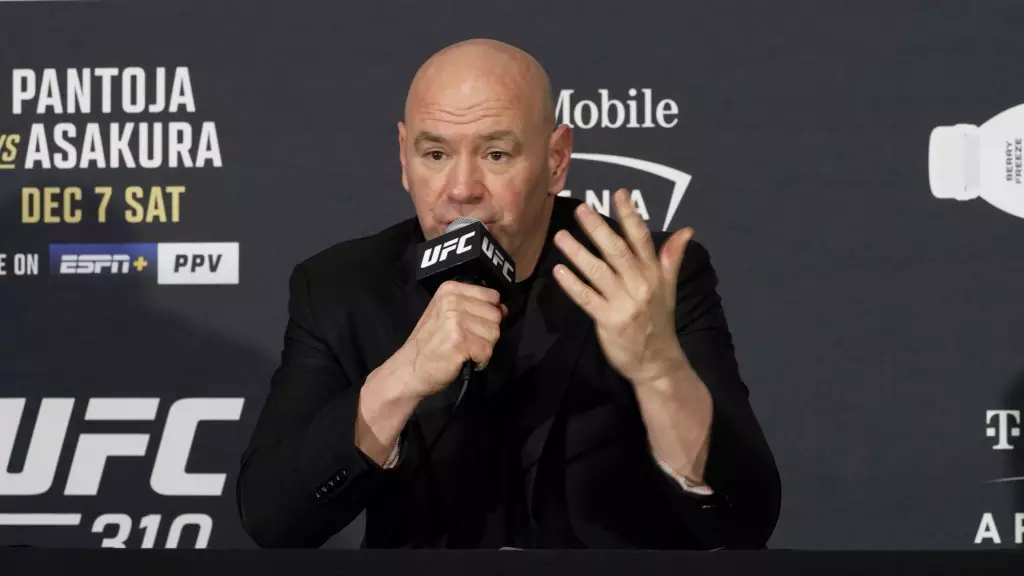In the world of mixed martial arts (MMA), where physical and mental fortitude are paramount, the question of when to retire is an especially poignant dilemma. Following UFC 310, a pivotal event held at the T-Mobile Arena in Las Vegas, UFC CEO Dana White made headlines with a stark directive regarding several veteran fighters: it might be time for them to retire. This event showcased both the tenacity and the vulnerabilities of seasoned competitors like Clay Guida, Chris Weidman, and Anthony Smith—fighters who, despite their storied careers, faced harsh realities in the octagon.
UFC 310 featured a mix of exhilarating matchups, but for experienced fighters like Guida and Weidman, it was a night of sobering outcomes. Guida, with his extensive history in the UFC, suffered a first-round submission defeat against the up-and-coming Chase Hooper, marking his third consecutive loss. With an age disparity of 18 years between the two fighters, this match highlighted not only Guida’s enduring legacy but also the relentless march of time that all fighters must eventually confront.
Meanwhile, Weidman, a former middleweight champion, found himself at the mercy of Eryk Anders, who finished him through TKO in the second round. This loss was particularly telling; Weidman’s record shows he has not enjoyed back-to-back victories since 2014, leading to a concerning trend for a fighter of his caliber. The cumulative effect of the harsh realities of competition and injury—particularly his devastating leg injury sustained in 2020—raises serious questions about the sustainability of his fighting career.
Adding a layer of complexity to this debate is the recent loss of Smith’s coach, which cast a shadow over his matchup against Dominick Reyes. Though Smith showcased bravery in the face of personal adversity, he ultimately succumbed to Reyes in the second round. His emotional state post-fight was palpable, marked by the removal of his gloves—a gesture that reverberated through the MMA world as a potential indication of contemplation around retirement.
Dana White’s directive for the aforementioned fighters to consider retirement speaks volumes about his philosophy on career longevity in the UFC. The expectation that fighters should completely dedicate themselves to the sport is underscored by the demand for mental clarity and physical prowess. For White, any semblance of hesitation or uncertainty signals that a fighter may be better off stepping away from the sport before safety becomes an issue.
As UFC 310 faded into memory, the futures of Guida, Weidman, and Smith lingered in the air like a heavy fog. For fans and fighters alike, the implications of retirement are profound, shaping not just the careers of these veterans, but also the landscape of MMA as a whole. In a sport defined by its ferocity and constant evolution, the question isn’t merely who will retire next, but rather what the sport itself will look like in the absence of its once-celebrated veterans. As the UFC moves forward, the narratives surrounding these fighters will undoubtedly transform, echoing the relentless cycle of competition, legacy, and, ultimately, readiness to bow out gracefully.

